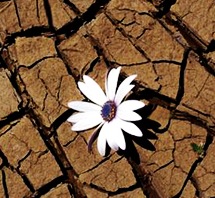One of the assignments Prof Boyatzis gave was to have a meeting in which we strive to be inspiring, coach with compassion. Easier said than done!
I had a couple of meetings where I tried to ask the right questions to trigger a thought process in my conversation partner, but I am not sure I succeeded. So I was thinking, why?
My working hypothesis is that I was too focused on the outcome, on the impression I'd make, rather than just be in the moment and let things take their own course. I find it generally difficult to just be - and allow things to emerge slowly and naturally. This is definitely an improvement point for me.
Today I decided to spend the day in silence - I was attending to everyday chores, but decided not to play any music, movie, or radio. Just me, my thoughts, the quiet buzz of the fridge and whatever sounds enter from the street through the open windows. Actually, this is already quite a palette of sounds. But none of them tried to pass a particular piece of information to me.
And so by mid afternoon I thought, what is MINDFULNESS?
Is that what I need to practice? How? How do I know when I am in the right state of mind?
For starters, I guess I do not know. But I think building a practice of silence, awareness and mental presence is something that will certainly not hurt me.
Coming back to my initial question - how to be inspiring and coach with compassion - I think for me the beginning is to admit that it's better something that happens naturally at first rather than me planning it for each and every meeting I have. Maybe through simply focusing on listening and being in the moment I will help my conversation partner feel energized!
I had a couple of meetings where I tried to ask the right questions to trigger a thought process in my conversation partner, but I am not sure I succeeded. So I was thinking, why?
My working hypothesis is that I was too focused on the outcome, on the impression I'd make, rather than just be in the moment and let things take their own course. I find it generally difficult to just be - and allow things to emerge slowly and naturally. This is definitely an improvement point for me.
Today I decided to spend the day in silence - I was attending to everyday chores, but decided not to play any music, movie, or radio. Just me, my thoughts, the quiet buzz of the fridge and whatever sounds enter from the street through the open windows. Actually, this is already quite a palette of sounds. But none of them tried to pass a particular piece of information to me.
And so by mid afternoon I thought, what is MINDFULNESS?
Is that what I need to practice? How? How do I know when I am in the right state of mind?
For starters, I guess I do not know. But I think building a practice of silence, awareness and mental presence is something that will certainly not hurt me.
Coming back to my initial question - how to be inspiring and coach with compassion - I think for me the beginning is to admit that it's better something that happens naturally at first rather than me planning it for each and every meeting I have. Maybe through simply focusing on listening and being in the moment I will help my conversation partner feel energized!



